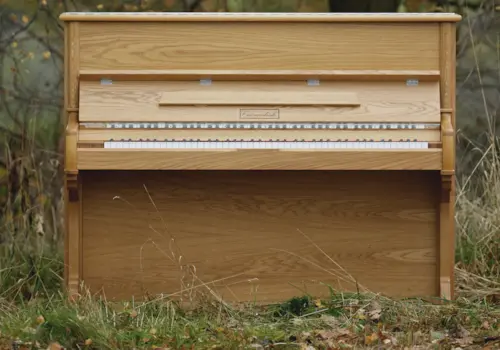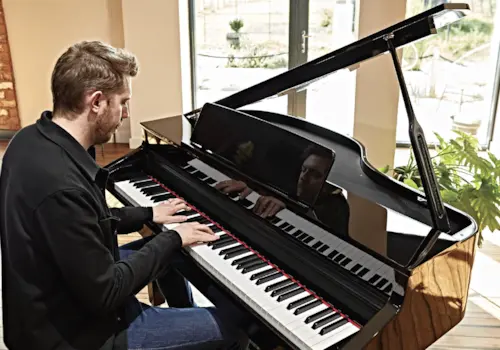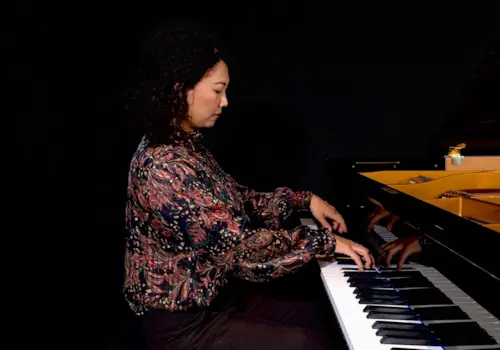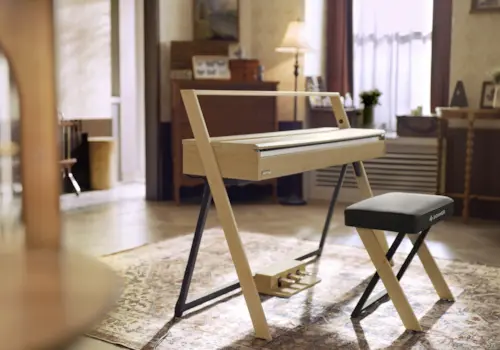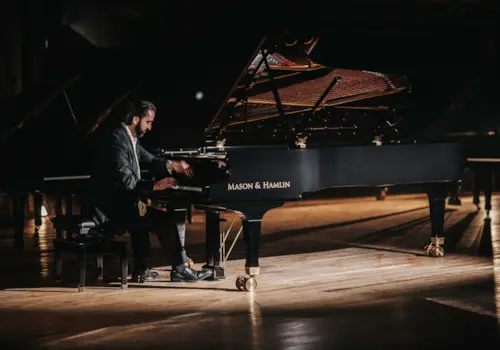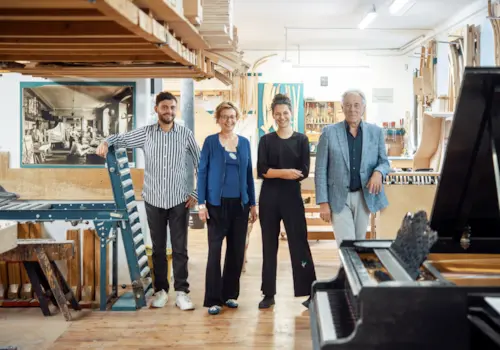30 July 2025
|
For beginner to intermediate piano players who are looking to either start the piano or improve their skills, there’s no better place to begin that journey than with the online education platform, Pianote, says John Evans
Few would disagree that learning the piano can be a lonely business beset with challenges which, if not managed well, can be frustrating and discouraging. Fortunately, it doesn’t have to be like this as Pianote, a leading online piano learning resource with thousands of satisfied students, proves.
Its guiding principle is that life is better with music but better still when learning and playing with others. It’s a principle Pianote’s enthusiastic teachers wholeheartedly embrace, encouraging students to actively engage with Pianote’s community of learners and mentors, for example via the forums where learners can present their current challenges for advice and suggestions.
Pianote has been teaching pianists since 2008, initially through DVDs and CDs before moving online, a medium that has enabled it to develop innovative ways of nurturing and encouraging students on the way to building a huge and supportive community of pianists.
Four years ago, Pianist reviewed Pianote and judged it to be an excellent way for beginner to intermediate pianists to learn the piano in genres including, classical – both traditional and contemporary – Latin, cocktail piano, worship piano, boogie-woogie, jazz, pop, rock and more. In addition, the magazine’s reviewer was impressed with the variety of learning tools available across the platform.
Today, we have no reason to revise that opinion. Pianote is a resource that has not rested on its laurels. The features our reviewer liked four years ago – its range of learning tools, opportunities for students to perform to their teachers, mentors and peers and its unique and creative techniques and approaches – have only evolved and multiplied. For proof, look no further than the launch, in 2023, of the Pianote Awards celebrating individual pianists and in 2024, Pianote’s revolutionary Play to Learn format that allows students to play while they learn and which incorporates interactive workouts and play-alongs.
In fact, it’s worth staying with Play to Learn for a moment. It takes traditional lessons and turns them on their heads by shifting the focus from a ‘learn and practise, to practise while 8 you learn’. Where most lessons will give you information and expect you to take it to your piano to practise on your own, Pianote’s lessons assume you are already at the piano and are ready to practise.
Every lesson now turns into a practice session, where you are engaged by playing the entire time. Once the ‘lesson’ is completed, you realise you just had a 10 to 20-minute practice session while learning new concepts, theory or technique!
SO WHAT CAN STUDENTS EXPECT FROM PIANOTE?
In short, unlimited piano lessons, guided practice sessions and access to real teachers, many of them recognised musical artists in their own right and among them Grammy winners. Having registered for the free trial and logged on to the Pianote homepage, the sheer variety of content and destinations confronting the student may seem overwhelming. Fortunately, the Take a Tour button is a handy shortcut to discovering Pianote’s key features, among them The Method.
This is the heart of Pianote – a 10-step learning programme comprising multiple pre-recorded lessons ranging from Getting started on the piano to lessons on dexterity and confidence, sight reading, solving playing problems and composition and song-writing. Like all Pianote videos, lessons are shot in highquality 4k format. Beginners should find The Method an invaluable key to being a more rounded musician, but even more advanced students will acquire skills and techniques that traditional teaching techniques may gloss over.
Crucially, the student is never alone. Teachers, mentors, fellow learners are all just a click away, keen to solve problems and share experiences.
Other areas showcased in Take a Tour include Workouts, where the building blocks of playing are explored. Topics here include everything from getting to grips with a Bossa clave (the rhythmic pattern underpinning a bossa nova – try it; it’s fun!) and classical piano fundamentals such as Intro to Hanon, Your first minor scale and Odd time signatures. You can probably tell by their titles that the Workouts are fun and they really are, being both fresh and inventive and a real spur to learning.
Another area for the pianist to get to grips with is Challenges, a suite of courses on improving skills and technique on just 10 minutes practice a day. Learning how to play from a lead sheet, to improvise and to play stride piano, are just three of the many topics. There are also 30-day Challenges on learning to read music, improving technique and playing the blues.
Another great shortcut to explore and one that is fundamental to Pianote, is the Introduce Yourself button. This is where the student can connect with their fellows in Pianote’s many forums, sharing experiences, challenges and goals in discussion groups on topics including the piano, genres or ‘songs’. In addition, there’s a group where Pianote mentors share tips and resources with students.
All the above can also be found on the lefthand menu bar along with many more destinations. This is Pianote’s community of pianists in action – everyone working together to support and encourage.
Thanks to clear signposting, navigating the site is straightforward and the student is soon immersed, exploring the many possibilities for learning and engaging with teachers and students.
During my visit, I was especially taken with Packs, a vast learning resource dedicated to different topics including The Classical Piano Collection devoted to core repertoire, Improvisation and Musical Freedom and, an intriguing one this, Destupify your left hand!
COMMITTED TEACHERS
Key to the appeal of Pianote is its level of support and engagement. Weekly live lessons, taught by real teachers who answer questions and provide feedback, help to accelerate the student’s development. Dedicated mentors assigned to every student assist with everything from technique to interpretation. In the Student Reviews section, students can submit videos of their playing for expert assessment and guidance.
The opportunities for engagement with mentors and peers are limited only by the student’s willingness to be involved.
This, plus their curiosity, consistency to keep up the practice and a willingness to explore are four qualities students should bring to every Pianote encounter, says Kevin Castro, a teacher and Pianote’s media director. ‘We’ve created tons of opportunities to go beyond just watching a lesson – from using our practice feature to work on assignments and loop the sections you’re working on, changing the key of the piece you’re working on and submitting video performances for feedback, to joining live sessions and engaging with other students in the community. Students who get the most out of these tend to treat them like a conversation and not just a one-way learning tool.’
It helps that they can learn at a pace they’re comfortable with. Pianote students have on-demand access to lots of lessons, courses, guided practice, feedback and inspiration whenever they need it. ‘They can learn at their own speed, revisit lessons anytime and choose the path that fits their personal goals,’ says Castro.
Students come from all walks of life but most are adult learners, some of them coming back to the piano after years away or picking it up for the first time. Some are looking to understand theory, others want to jam, compose or simply play their favourite songs. Among Castro’s favourite features in Pianote are the courses hosted by guest artists including Erskine Hawkins (Eminem, Babyface) who teaches Gospel Piano, Eric Wortham (Adele, Jill Scott) who teaches R&B Piano Essentials, Jordan Rudess (Dream Theater) who teaches Piano Technique, and Jesus Molina who teaches Harmony and Musical Freedom.
As a Pianote teacher, Castro looks forward to connecting with students live on ‘In Theory’, a weekly livestream exploring music theory. ‘We cover everything from ear training and harmony to the circle of fifths and chord progressions. It gives me the chance to go deep on topics I love, answer questions as they come in and help students make real-time breakthroughs.’
Castro’s colleague, Lisa Witt, also a teacher and Pianote’s Lead Instructor and VP of Education loves the student forums. ‘They are super special because this is where students are sharing their progress, their struggles and their wins. The community that has developed Pianote is encouraging, supportive and really inspiring. As I always say, embrace the mistakes, celebrate the wins, create space for creativity and enjoy the process of learning!’
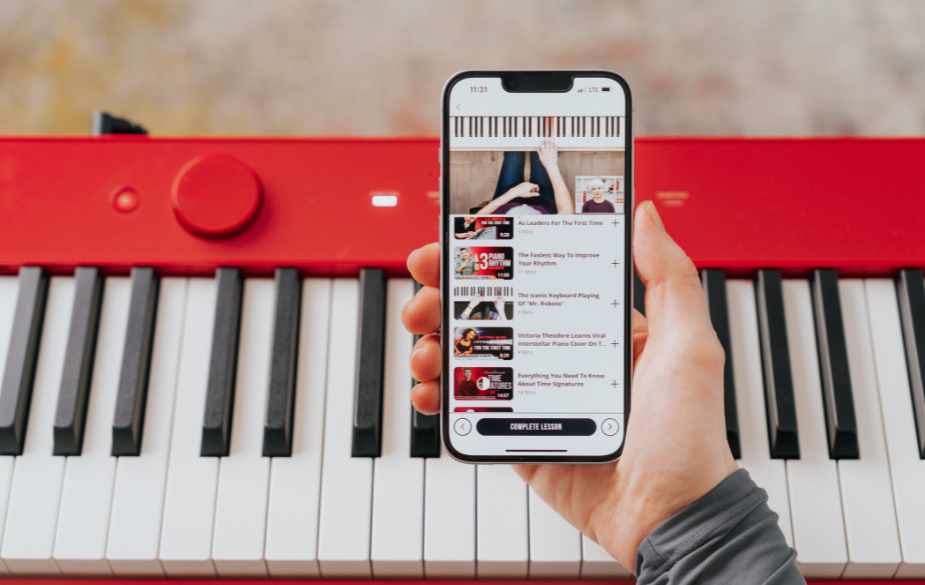
Ready to experience Pianote for yourself?
We’re offering Pianist magazine readers an exclusive 30-day free trial of Pianote. Whether you’re picking up the piano for the first time or returning after years away, you’ll get instant access to thousands of step-by-step lessons, guided practice tools, and a passionate community of teachers and students ready to support you.
Start your free 30-day trial today and play your first note with confidence:

